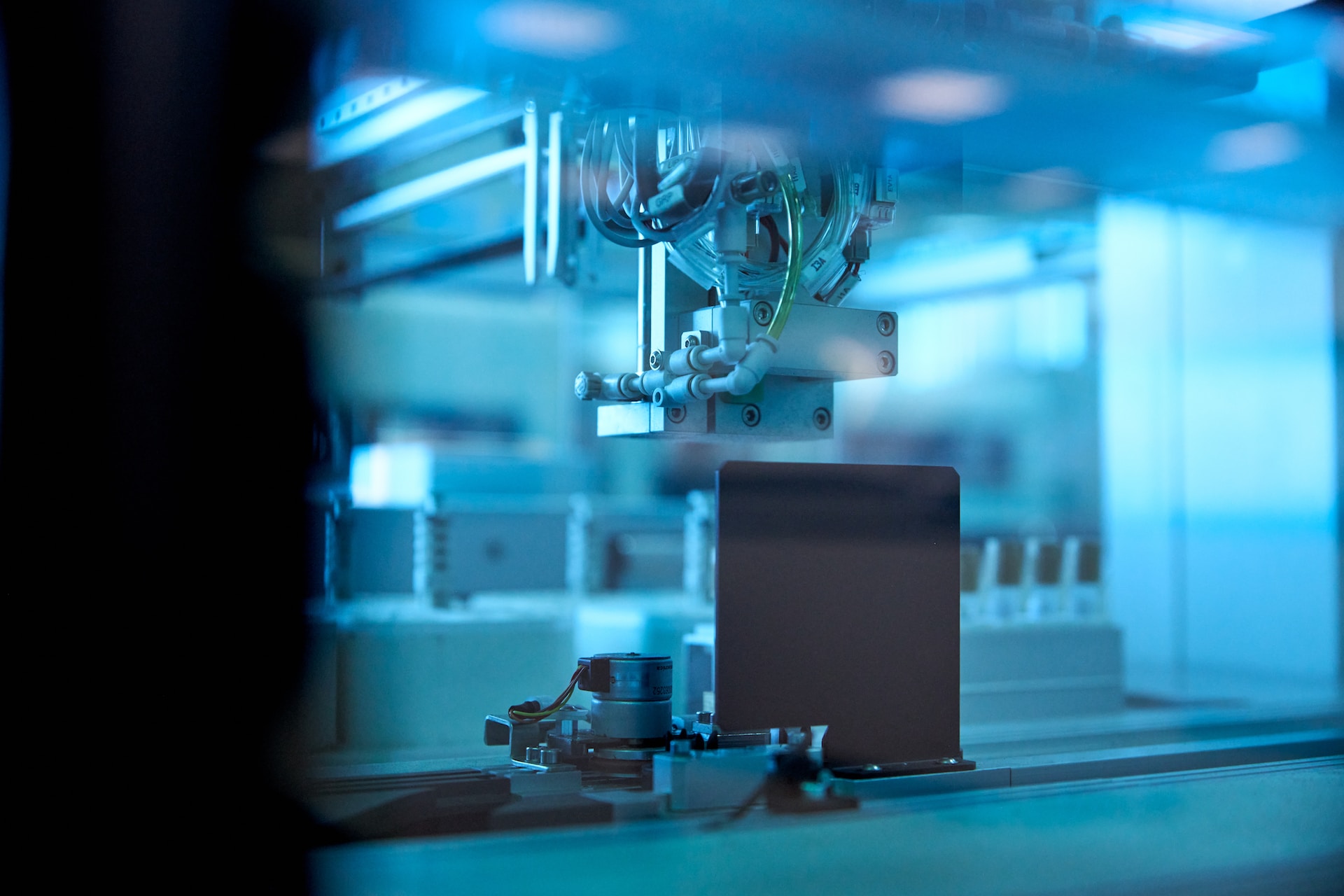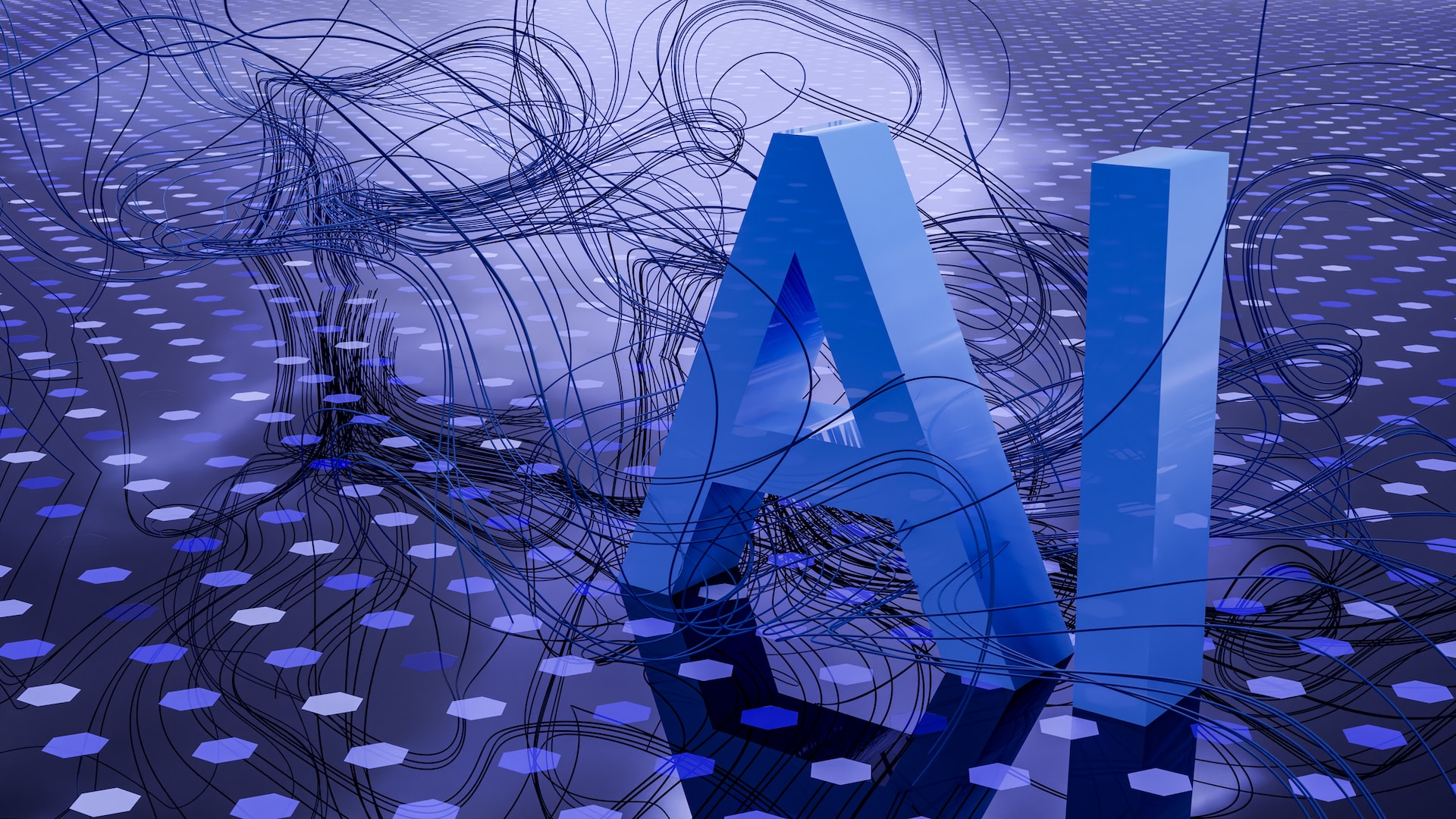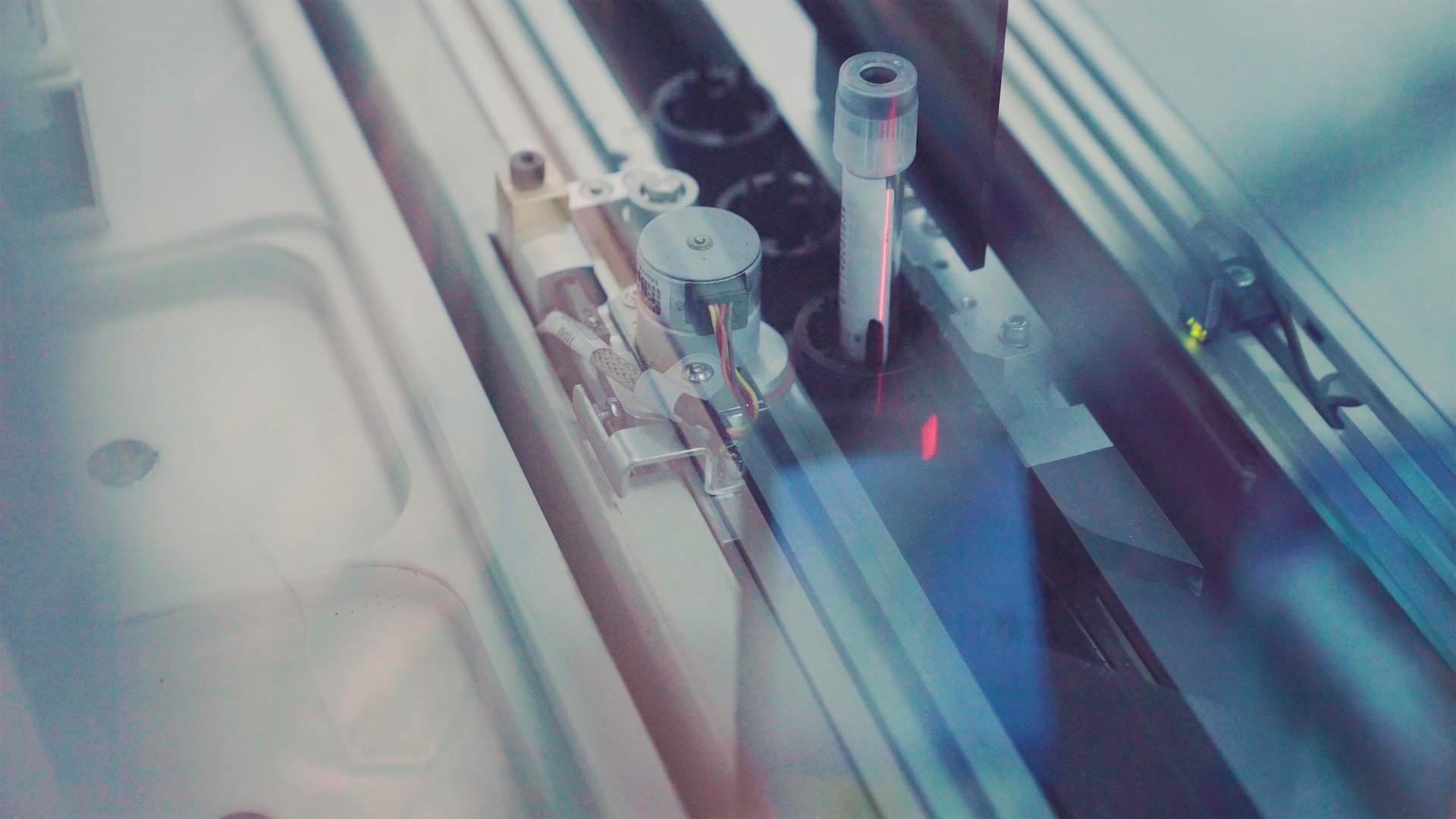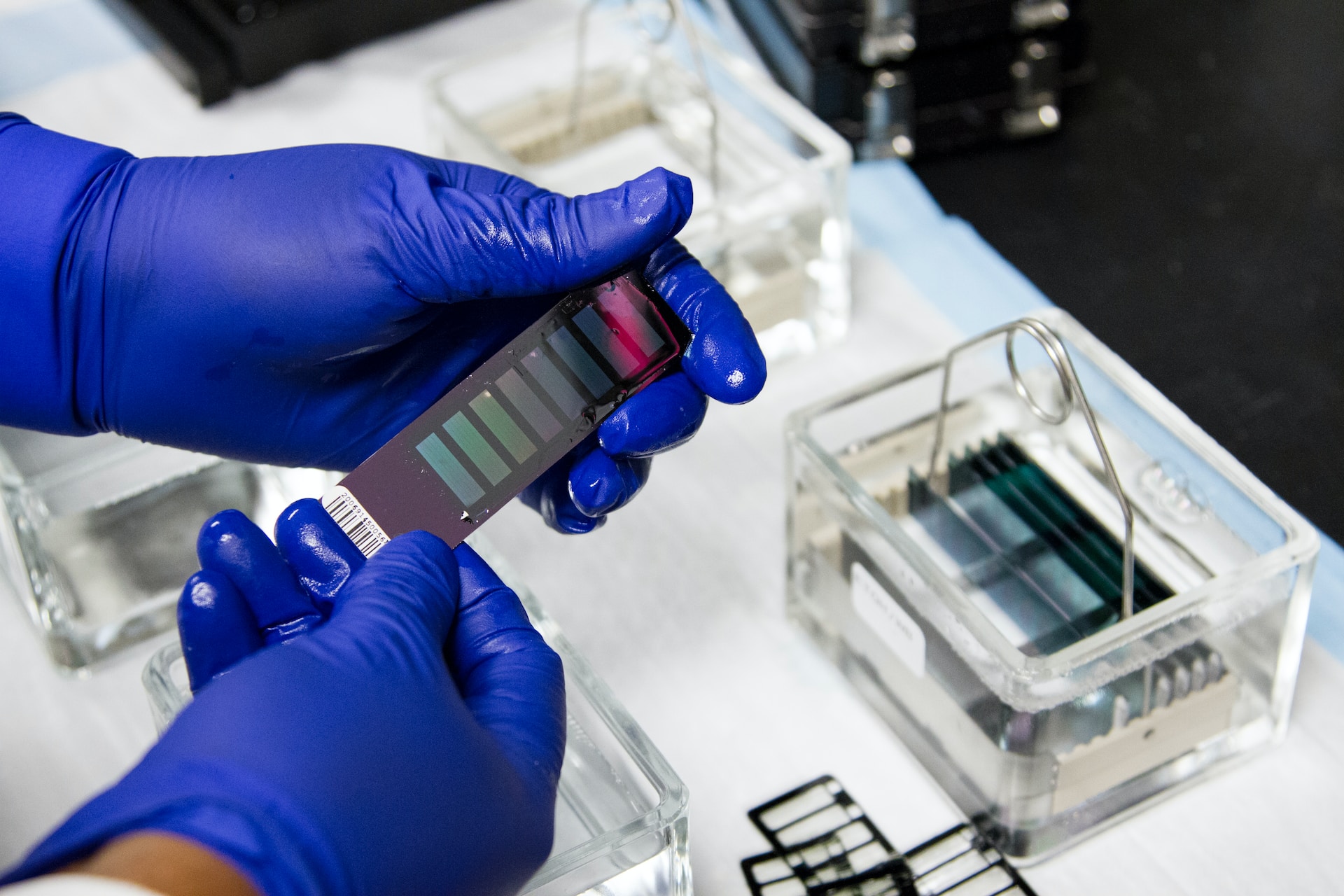
How the AI Revolution is Impacting the MedTech Industry
13 Oct, 20238 minutesWe live in an era of transformative change, where many industries are turning to cutting-edg...

We live in an era of transformative change, where many industries are turning to cutting-edge technology to automate and enhance everyday tasks. This AI revolution is having an especially profound impact on MedTech, an industry which has positioned itself at the forefront of fusing medical science with state-of-the-art technology. Having been adopted by health services all over the world, AI-powered medical devices have already been instrumental in improving diagnosis, treatment, and health monitoring.
Yet, despite its achievements and innovations, AI remains a source of concern for many. Its detractors draw attention to the ethical issues AI raises and its possible impact on the future of medical technology jobs. While the debate about the benefits and drawbacks of AI in MedTech rages on, one thing remains clear: AI is here to stay.
In this guide, we’ll explore the top AI innovations that are reshaping MedTech, and we’ll delve into the advantages and disadvantages that AI poses for the industry.
Top AI Innovations Reshaping MedTech
The AI revolution has had a transformative effect on the MedTech sector. While there are understandable concerns around AI, particularly its impact on medical technology jobs, AI-powered innovations have yielded numerous benefits for patients, healthcare providers, and medical technology companies.
With research forecasting that the global healthcare AI market will increase at a compound annual growth rate of 37% from 2023 to 2030, it is clear that AI technology will continue to play a pivotal role in the MedTech space for the foreseeable future.
Here are 3 AI innovations that have significantly altered the medical technology landscape:
AI-Enhanced Medical Imaging
Medical images like X-rays, CT scans, and MRIs have been used to detect diseases and abnormalities for many years, and thanks to the advent of AI-powered medical imaging, healthcare professionals can now make quicker and more accurate diagnoses.
Traditional medical imaging techniques typically take longer to provide conclusive results, and they occasionally miss significant abnormalities, such as cardiovascular conditions and musculoskeletal injuries. In contrast, AI algorithms are designed to identify a broader list of conditions in a much faster timeframe, resulting in earlier interventions and better patient outcomes.
Research found that brain tumour classification can take up to 40 minutes with traditional methods, whereas the use of MRI images and machine learning can produce a tumour classification in a matter of minutes. This fascinating finding demonstrates just how effective AI-enhanced medical imaging can be, and given outstanding results like these, it is unsurprising that the AI medical imaging market is set to expand dramatically from 2023 to 2030.
Personalised Medicine
Artificial intelligence is also having a profound effect on personalised medicine. Referring to the practice of preventing, diagnosing, and treating diseases based on a patient’s unique genetic profile, personalised medicine is a trend that has gained traction in recent years, and its market size is forecasted to reach a staggering $5.7 trillion by 2030. This growth in popularity is in part due to the rapid advancement of AI, as AI algorithms can help doctors create personalised healthcare plans based on a patient’s medical history, lifestyle data, and genetic makeup.
AI-powered personalised medicine tools are allowing doctors to move away from the outdated ‘one-size-fits-all’ approach, shifting the focus from reaction to prevention. Research shows that AI is successful at predicting risk factors for certain cancers and cardiovascular diseases, a finding that bodes well for the future of preventative healthcare.
Capable of predicting patient outcomes and identifying the most beneficial treatments, AI algorithms have the potential to cut costs associated with unnecessary treatments and lengthy diagnostic processes while freeing up valuable time for busy healthcare professionals.
Remote Patient Monitoring
Another vital MedTech innovation that the AI revolution has accelerated is remote patient monitoring. Wearable technology has made it possible for doctors to track their patient’s health metrics remotely.
Not only does managing patient care remotely enable healthcare professionals to intervene earlier if necessary and improve patient outcomes, but it also allows for more efficient use of resources by reducing the risk of unnecessary hospital visits. AI plays an active role in remote patient monitoring, interpreting vast amounts of data and alerting medics if there is an abnormality with the patient’s vital signs, medication adherence, or other significant health indicator.
For medical technology companies that produce state-of-the-art wearable technology for clinical purposes, it is standard practice to incorporate AI software into their devices. AI-powered wearables allow patients to become more engaged with their healthcare plans while assisting healthcare professionals with making data-driven decisions about patient care.
With GlobalData claiming that AI will be a key driver of medical device innovation in 2023 and beyond, it’s fair to assume that AI-powered remote patient monitoring devices will be integral to the MedTech industry’s financial prosperity over the coming years.
If you would like to discover more about other key trends revolutionising MedTech, we encourage you to check out our ‘Leading Trends Reshaping MedTech Companies in 2023’ guide.

The Advantages and Disadvantages of AI in MedTech
Since the arrival of AI technology, there has been endless debate over its risks and rewards, especially within the MedTech sector. Many hail the emergence of artificial intelligence as a step forward for scientific innovation and digitally-driven healthcare, while others have expressed unease about its possible impact on employment and the lack of all-important human oversight.
As debate rages on, there is one simple fact that either side cannot deny: the AI revolution is here to stay. Rather than view it with trepidation, professionals and businesses alike should embrace the transformative effects of AI and feel optimistic about the many medical technology jobs it could create, all while keeping a close eye on the inevitable challenges that may arise.
In this section, we’ll explore both sides of the debate, delving into AI's various advantages and disadvantages in the MedTech industry.
3 Advantages of AI in MedTech
As we’ve touched on in this guide, AI medical technology is a rapidly expanding market, with the demand for AI-powered medical devices constantly growing. But why is this so? There are numerous reasons why healthcare professionals and medical technology companies are choosing to harness the powers of AI, and here are 3 advantages it offers:
1. Efficiency
One of the key reasons the healthcare and medical technology sectors leverage AI is its undoubted efficiency. AI-powered tools are able to speed up patient diagnosis, automate administrative tasks such as appointment scheduling or billing, and assist healthcare professionals in reaching clinical divisions by providing evidence-based recommendations.
From telemedicine to remote patient monitoring, AI-driven technology has made many aspects of modern healthcare all the more efficient. It also makes a big difference to medical technology companies’ production times, with research showing that AI applications can free up to 1,944 million hours yearly. If you are a MedTech business looking to optimise and streamline your work processes, implementing AI technology is a surefire way of achieving it.
2. Accuracy
As well as being efficient, AI technology is able to provide a high level of accuracy in diagnosing diseases. One study found that AI models could achieve an accuracy of 98.56% in brain tumour classification, an eye-catching statistic demonstrating why so many medical professionals consider the AI revolution to be an overall benefit for the field of diagnostics.
With the ability to produce fast and highly accurate diagnostic results, AI can alleviate the workloads of physicians, thereby allowing them to focus on delivering better patient care. By identifying the warning signs of serious diseases such as cancer and heart failure with better accuracy than human physicians, artificial intelligence has the potential to save millions of lives while reducing costs for healthcare providers.
3. Wider Access to Care
Due to ongoing challenges such as growing demand for services and staffing shortages, healthcare providers must look for innovative ways to deliver top-quality, cost-effective care at scale. Many patients face significant barriers to accessing vital healthcare, not least due to issues around mental health, mobility, and distance from healthcare facilities.
For many health authorities, the answer to this problem lies in AI-driven solutions such as remote patent monitoring and telemedicine, as these methods allow patients with limited mobility to access healthcare. AI-powered telemedicine platforms are designed to bridge the divide between doctor and patient, remotely monitoring health metrics in real-time while enabling prompt interventions if necessary.
While there are understandable ethical concerns around data security and informed consent, AI tools are nevertheless effective in ensuring that a greater number of people are able to access the healthcare services they need.

3 Disadvantages of AI in Medtech
Although the AI revolution has produced a wide range of advantages for the MedTech industry, several downsides are worth considering. AI may be innovative and forward-thinking, but how does it affect human input? And is there any chance of it suffering from bias? Here are 3 potential disadvantages of AI in MedTech that explore these important questions:
1. Human Oversight Still Required
While AI can perform vital duties such as making medical diagnoses or analysing complex data of its own volition, it still requires human oversight. Without a physician signing off the judgement of an AI tool, there is a chance of inaccurate data analysis or even misdiagnosis. Striking the perfect balance between AI and human oversight is an ongoing challenge, and while this represents a limitation for artificial intelligence, there is still plenty of opportunity for AI to develop to a point where human surveillance isn’t as critical.
2. Job Security
Though AI is able to reduce heavy workloads for physicians and reduce expenditure, there is significant concern over its impact on jobs. AI’s ability to make efficient, accurate diagnoses, predict future illnesses, and develop personalised healthcare plans are extremely beneficial for patients, but for the professionals who have traditionally carried out these tasks manually they may face the threat of unemployment in the future.
Worries about AI rendering certain professions redundant are certainly understandable. However, plenty of evidence suggests that artificial intelligence will create a wide array of healthcare and medical technology jobs. One study published in the Asia Pacific Journal of Human Resources somewhat assuages the fears related to the future of job security in healthcare, claiming that rather than making humans obsolete, AI’s role will be to augment clinical decision-making and create a variety of new positions.
3. May Lead to Biased Results
Another drawback of AI in MedTech is the risk of biased results. It is possible that AI algorithms could produce biased results if the AI was trained using data with a leaning for a specific race or gender, an issue that has the potential to hamper its accuracy. A lack of diversity in teams that develop AI could be a contributory factor in explaining why the algorithms may reflect a certain bias. To mitigate the threat of bias, it is essential for AI developers to make sure that the data is representative of the entire population and to identify any possible bias in the design phase.

The Final Word
The AI revolution in the MedTech industry is an undeniable force, driving transformative changes that hold the potential to improve patient care, efficiency, and access to healthcare. While there are valid concerns about ethical considerations, job security, and the need for human oversight, the advantages of AI in MedTech are compelling.
As we navigate this era of AI-powered MedTech, it's essential to strike a balance between embracing innovation and addressing its challenges. By leveraging the strengths of AI while upholding ethical standards and ensuring human oversight, we can harness the full potential of this technological revolution to benefit both patients and the healthcare industry.
Cutting-edge life Science Recruitment for the AI Revolution
As specialists in life science recruitment, we are passionate about helping medical technology companies drive innovation with effective hiring solutions. Since forming in 2016, we have earned a reputation for placing high-quality candidates into top roles in the life sciences industry.
Our award-winning consultants have unmatched expertise in their specialisms, and their efforts have allowed us to emerge as one of the UK’s eminent life science recruitment agencies. Whether you are a candidate looking for the latest medical technology jobs or a life science business that wishes to hire exceptional talent, reach out to us today to discover more about how we can support you.
